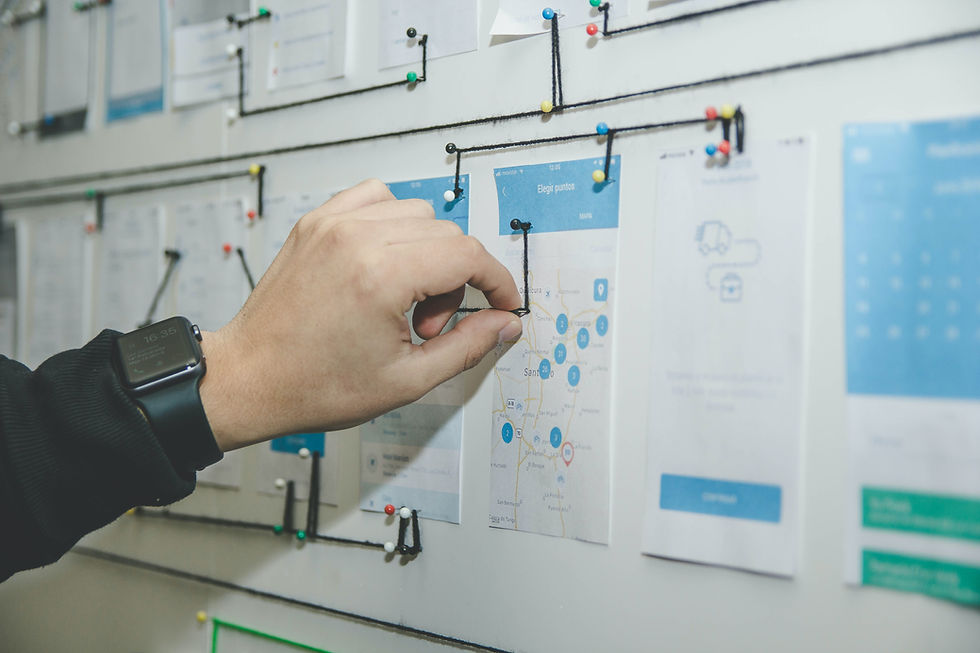Combine Design Thinking, Lean, and Agile in your digital transformation
- Erik Hartman
- Jan 19, 2023
- 3 min read
In their search for digital transformation, organisations often use a methodology to solve their problem. But just as often, that methodology does not solve the problem. Then they jump to the next newest trendy methodology. And the next. And... the next.

The problem is that management and professionals often think that they can use that one methodology for everything. That is what the various Scrum, Lean management, Agile, Lean Startup, Kanban, Lean SixSigma, and Design Thinking coaches very much want us to believe. But it usually does not work because the problems are too complex.
Combine Design Thinking with Lean and Agile
Nearly every methodology has some added value in certain situations. But it is not a good idea to dogmatically use one methodology for everything and stubbornly stick to it no matter what. Instead, it may be a combination of methodologies that can help you with the challenges of digital transformation.
Nordstrom Innovation Lab (Nordstrom is an American department store) very nicely shows how you can combine Design Thinking, Lean Startup, and Agile. The orange line is the path you take with Design Thinking, the yellow line is the Lean process, and the series of blue curls is the Agile process."

Learning, improving, innovating, and truly listening
Lean focuses on continuous learning and improvement to create real value for the customer. What does not create value is waste. And waste must be avoided and eliminated. There are various versions of Lean - Lean Management, Lean SixSigma, and Lean Startup - but at the core they are the same.
Agile helps development teams achieve the best outcomes using technology by continuously delivering value and adapting to the changing needs of the customer.
Design thinking starts from the perspective of the customer and fully immerses itself in the problem the customer has and develops a solution for it. Instead of the other way around, where the solution is already there and a problem needs to be found to fit it.
Continuous improvement of the value stream
This is a cycle of listening, experimenting, learning, improving, innovating, and listening again. This never ends and brings you into a continuous value stream 'flow'.
The Sunglass iPad App Case Study by Nordstrom Innovation Lab nicely shows how this combination of methodologies works in practice.
The value stream of Nordstrom
The added value of combining methodologies
In the Nordstrom video, the added value of the combined methodologies is very evident. By working in iterations of 1 week, the entire process goes very quickly. There is already a usable project after 1 week. This 'minimum viable' product is then continuously improved.
By testing everything directly with the customers on the floor and also listening and observing very well, the product becomes better and better. They quickly discover, for example, that the iPad screen is not readable in portrait mode when people are wearing Polaroid sunglasses. That problem is then immediately solved.
More about Design Thinking, Lean Startup, and Agile
If you want to know more about these three methodologies, the article Design Thinking, Lean Startup, and Agile: What is the difference? by Nicolò Mantini can help you get started. He explains the three methodologies well and also shows how to combine the three.
He follows the Gartner model which I find slightly less good than the Nordstrom model because the Nordstrom model places Agile really within the Lean process. But I don't want to come across as dogmatic, so choose for yourself.

And also check out Nicolò's video Design Thinking, Lean Startup, and Agile: What is the difference?, in which the three methodologies - without sound - are explained.
Improvement methodologies in process management.
Continuous optimisation is the core of business process management (BPM).
During the TIMAF training BPM Specialist, you will learn how to use various improvement methodologies to improve the products and services of your organisation.



留言